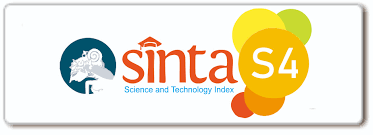Membangun Generasi Insan Kamil, Generasi Anti Korupsi
DOI:
https://doi.org/10.47200/ulumuddin.v12i1.955Keywords:
insan kamil, anti-corruption, anti-corruption education, phychology of corruptionAbstract
The rise of behavior in our country is a trigger for all parties, it requires significant efforts from various parties, especially education personnel to participate in solving the corruption. This study aims to answer research problems about what is meant by the insan kamil generation and how to build an anti-corruption generation. This study uses a library research approach where the data obtained are analyzed using non-interactive methods or document analysis. Researchers use various documents, books, websites, research results, or expert opinions that are relevant to the research topic. The results of this study are the generation of insan kamil is a certain age group who has a strong desire to be perfect by imitating or imitating the perfect man who has been created by Allah SWT on earth, namely the Prophet Muhammad SAW. Sidiq (honest) Fatah (intelligent) and Tabligh (deliver).









